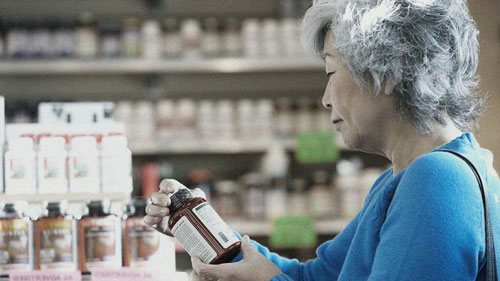THE research found small but significant decreases in the risk of SARS-CoV-2 infection among females — but not males — who took multivitamins, vitamin D, omega-3 fatty acids, or probiotics.
Researchers at King’s College London, in the United Kingdom, analyzed data from 1.4 million users of the Covid Symptom Study app in the U.K., the United States, and Sweden. The participants answered questions about their regular use of dietary supplements.
The app users also reported results from Covid-19 tests and whether they had experienced symptoms of the illness.
“Our research is an observational study and not a clinical trial, so we can’t make strong recommendations based on the data we have,” cautions senior researcher Dr. Cristina Menni, of the School of Life Course Sciences, at King’s.
Stay informed with live updates on the current Covid-19 outbreak and visit our coronavirus hub for more advice on prevention and treatment.
“Until we have further evidence about the role of supplements from randomized controlled trials, we recommend following the [National Health Service] guidelines on vitamin usage as part of a healthy, balanced diet,” she adds.
The study, which has not yet been peer-reviewed, has been uploaded to the preprint server MedRxiv.
The researchers were surprised to find that only females appeared to benefit from taking the four supplements in question.
They cite, however, several studies that have found that females have more robust immune systems, which may mean that their immune defenses get more of a boost from supplements.
Alternately, females may be more likely to wear masks or wash their hands than males, which could increase the apparent protective effects of taking supplements.
“These are interesting results, but due to the way the study has been conducted, these data absolutely cannot tell us that taking such supplements ‘protects’ against infection [resulting in] Covid-19,” says Naveed Sattar, a professor of metabolic medicine at the University of Glasgow, in the U.K., who was not involved in the research.
“It may be that by being more health-conscious, some women are less likely to become infected, so that it’s the behaviors that explain these results, not the supplements,” he hypothesizes.
Seif Shaheen, a professor of respiratory epidemiology at Queen Mary University of London, adds that the researchers had not accounted for factors such as income and educational attainment in their analysis.










